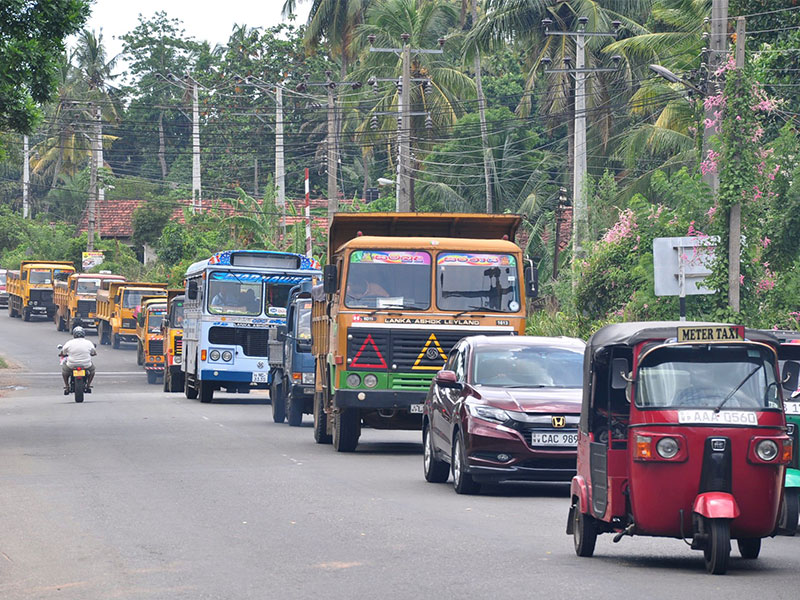More than 90% of vehicles running in Sri Lanka are not meeting the proper smoke emission standards.
The issue has been reported to Parliament by the Sectoral Oversight Committee on Energy and Transport.
This is a serious problem, as it can lead to air pollution, which can have a number of negative health impacts, including respiratory problems, heart disease, and cancer.
The international smoke emission standard is 0.5 grams per kilowatt hour (g/kWh). This means that a vehicle should not emit more than 0.5 grams of smoke per kilowatt hour of fuel burned. However, the article states that 90% of vehicles in Sri Lanka emit more than this amount of smoke.
The current emissions testing system in Sri Lanka is not as stringent as the international standard. The system only requires vehicles to be tested for emissions every two years, and the test only covers a limited number of pollutants. As a result, many vehicles that are on the road in Sri Lanka are emitting harmful pollutants at levels that are above the legal limits.
Introducing the MOT test (annual test of vehicle safety in thye UK ) in Sri Lanka would be a useful way to improve the emissions performance of vehicles. The MOT test covers a wider range of pollutants than the current Sri Lankan system, and it is conducted more frequently. This would help to reduce air pollution and improve public health.
In addition to introducing the MOT test system, the Sri Lankan government can also take other steps to improve the emissions performance of vehicles.
The Sri Lankan government has been gradually introducing policies to promote the use of electric vehicles (EVs). In 2019, the government announced a plan to phase out the import of all petrol and diesel vehicles by 2030.







